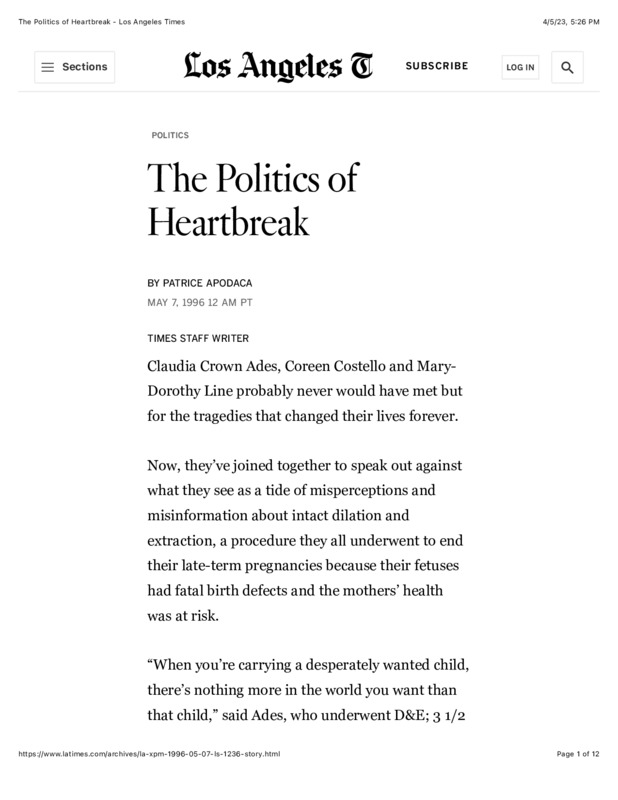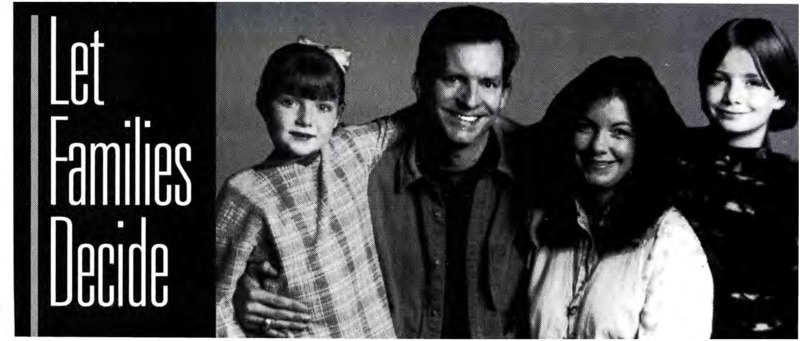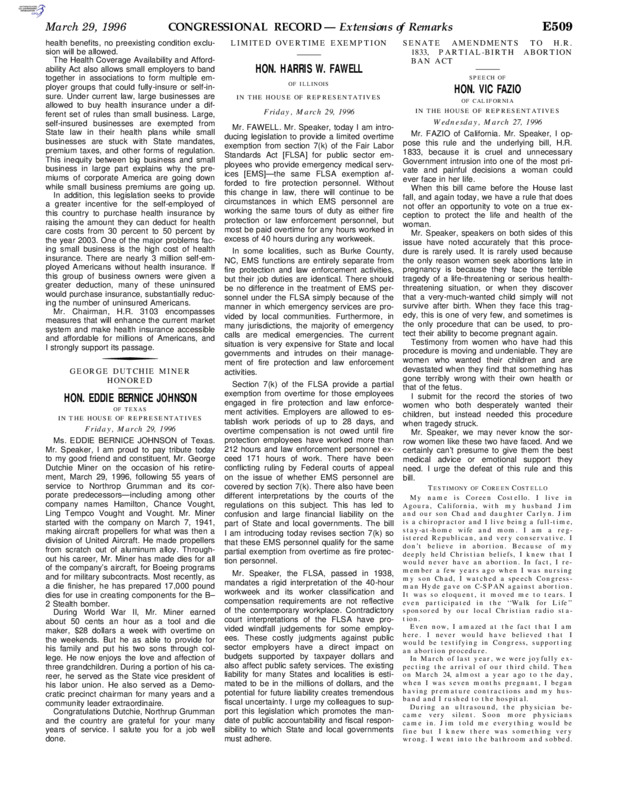Religious Women's Experiences with PBA

The Politics of Heartbreak
"The Politics of Heartbreak" by Patrice Apodaca tells the story of Coreen Costello and her experience with abortion. Costello, a young woman living in California, became pregnant at the age of 21 and made the difficult decision to have an abortion. She was forced to go through a mandatory waiting period, which she found to be emotionally grueling. Costello's story is used as an example of the political and emotional complexities of abortion. The article highlights the ways in which laws and regulations surrounding abortion can affect individual women and their families. It also explores the broader political and cultural debates surrounding the issue.
The article argues that abortion is a deeply personal and emotional decision that should be left up to individual women, rather than being regulated by the government. It also suggests that the political and cultural battles over abortion can be harmful and traumatic for women who have had abortions or are considering the procedure. Overall, "The Politics of Heartbreak" presents a powerful argument for allowing women to make their own decisions about abortion, free from government interference and political agendas. Costello's story is used as a poignant example of the emotional toll that such decisions can take on women and their loved ones.

Let Families Decide
Written by a conglomeration of the National Association for the Repeal of Abortion Laws (NARAL), Planned Parenthood, and National Abortion Federation, this pamphlet opposes the ban of partial birth abortions by telling readers to oppose HR 1833. Among the conservative Republican women who are quoted in the pamphlet is Coreen Costello, yet again, saying, “We are the families who love and want our babies. We are the families who will forever have a hole in our hearts… It deeply saddens me that you [senators] are making a decision having never walked in our shoes.” [1] The pamphlet explains that many of these conservative Republican women were faced with medical emergencies and needed the partial-birth abortion for their own health and safety. It argues that the procedure has become sensationalized and marks the first time the House has voted to criminalize an abortion procedure since Roe v. Wade.

SENATE AMENDMENTS TO H.R. 1833, PARTIAL-BIRTH ABORTION BAN ACT
This congressional record includes testimonies from Coreen Costello and Mary-Dorothy Line, both of whom had partial-birth abortions, are Catholic Republican women, and who both now are in opposition of the bill’s ban. “Because of my deeply held Christian beliefs,” Costello said, “I knew that I would never have an abortion… Even now, I am amazed at the fact that I am here. I never would have believed that I would be testifying against in Congress, supporting an abortion procedure.” [2] Coreen Costello is a prime example of religious beliefs skewing political beliefs. Her deep-seated opposition to abortion was changed once she needed a partial-birth abortion for medical reasons. She testified to Congress that the procedure shouldn’t be banned, otherwise women like herself “may lose their ability to have more children; they may lose their health; they may lose their lives.” [3] Though these women were conservative religious women, they believed in the legality of partial-birth abortions to keep women safe.
1. Edna Louise Saffy, “Let Families Decide,” National Association for the Repeal of Abortion Laws, https://catalog.archives.gov/id/7052023.
2. U.S. Congress, Congressional Record, Senate, 107th Cong., 1st sess., vol. 147, (April 25, 2001): S3525.
3. Ibid